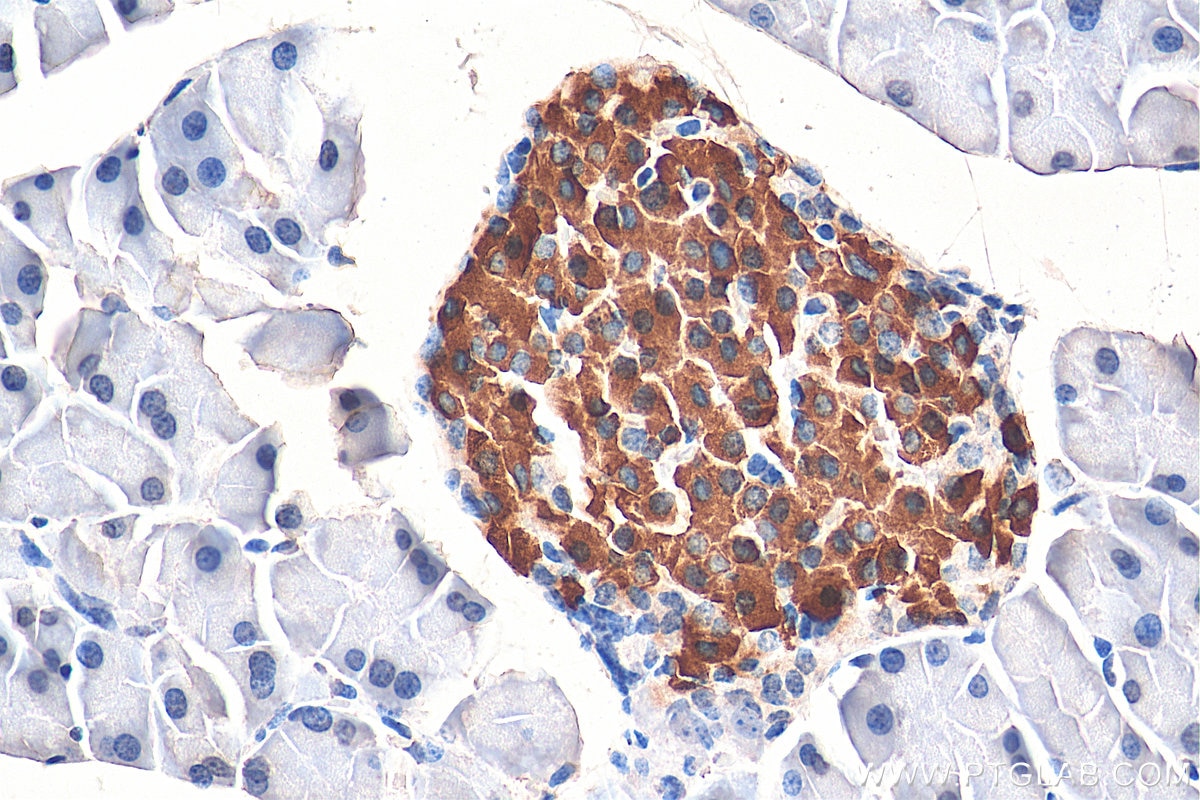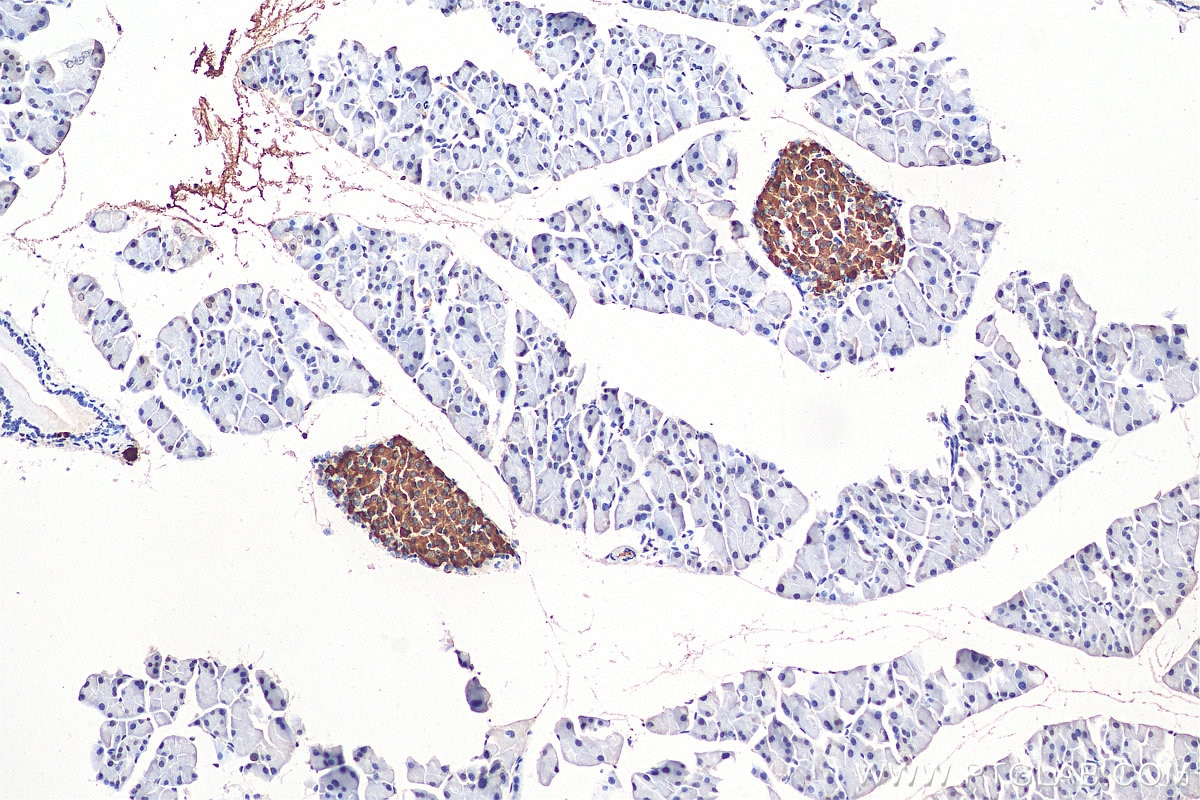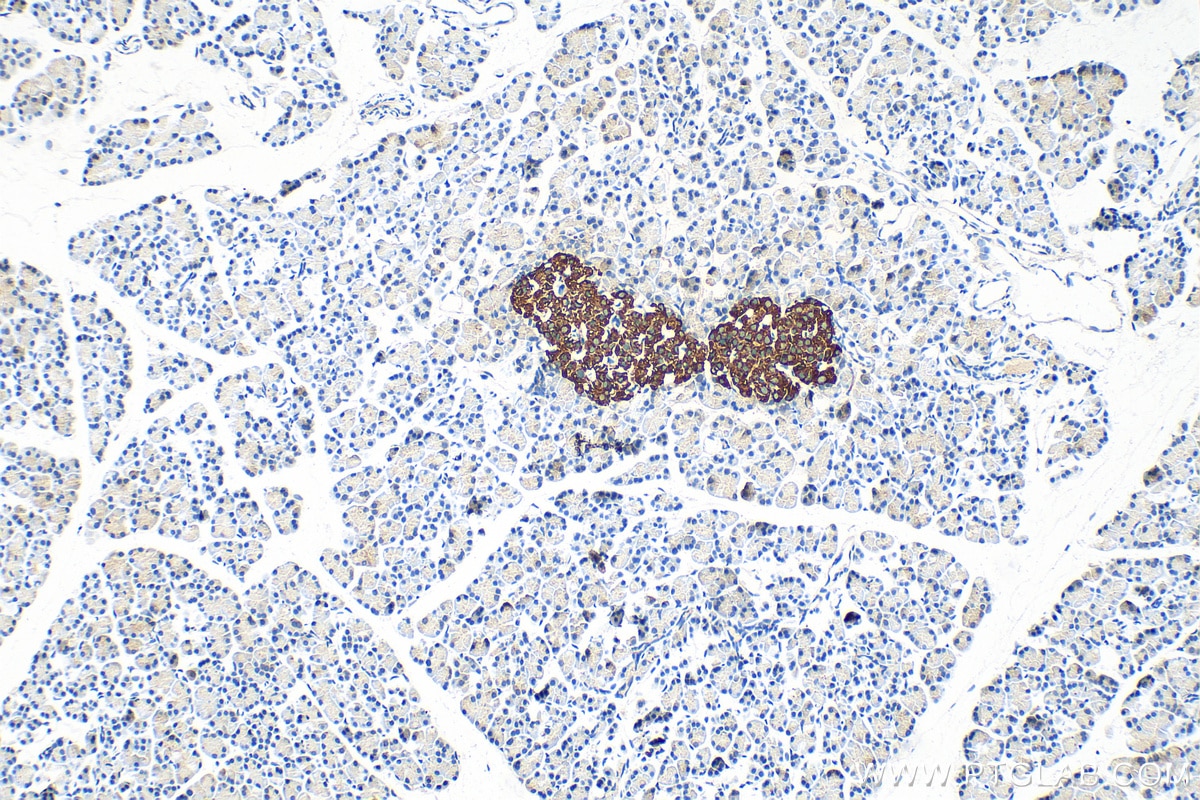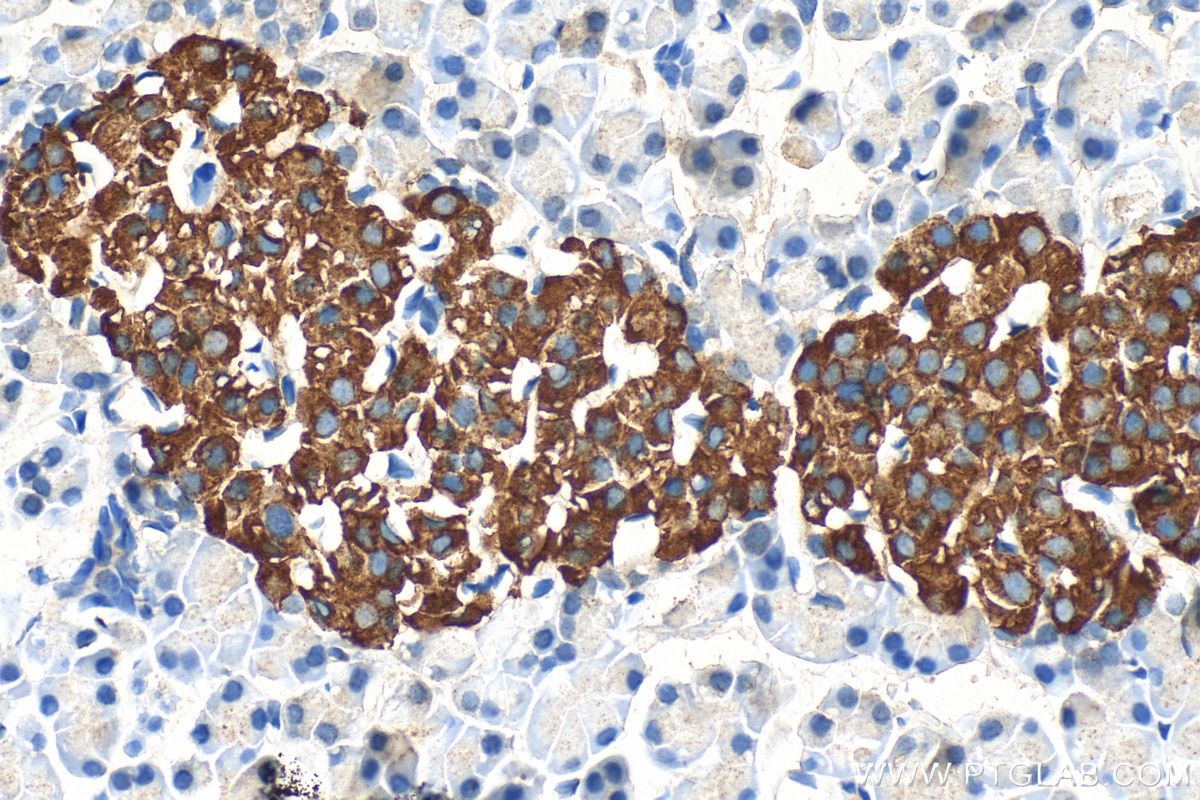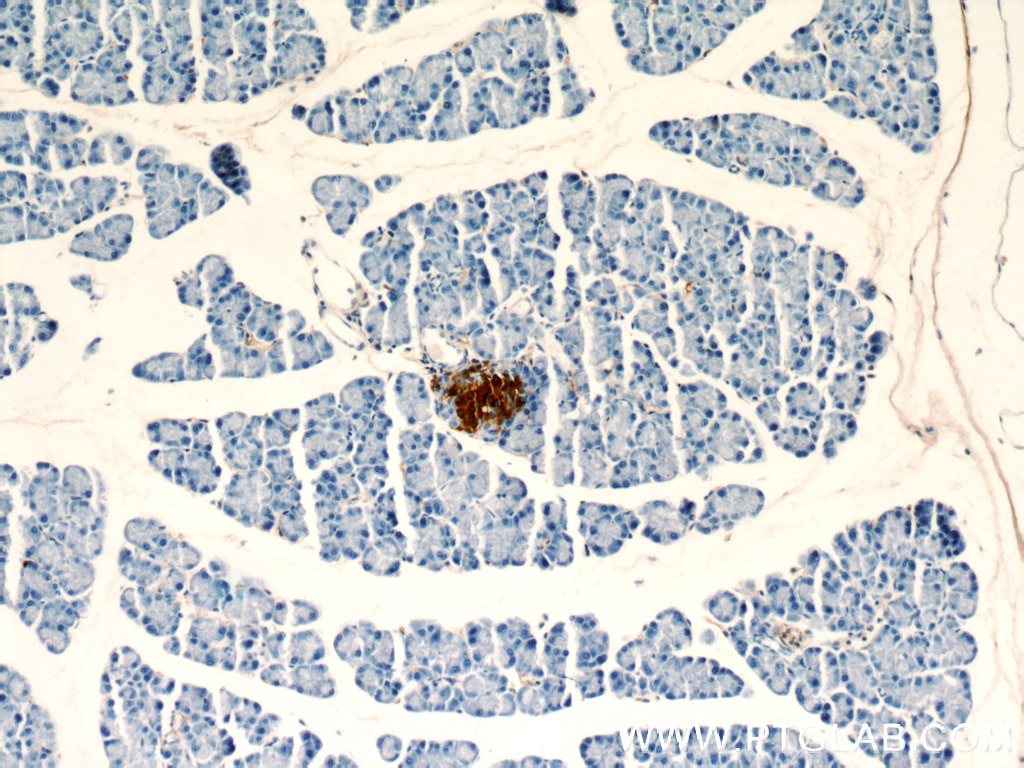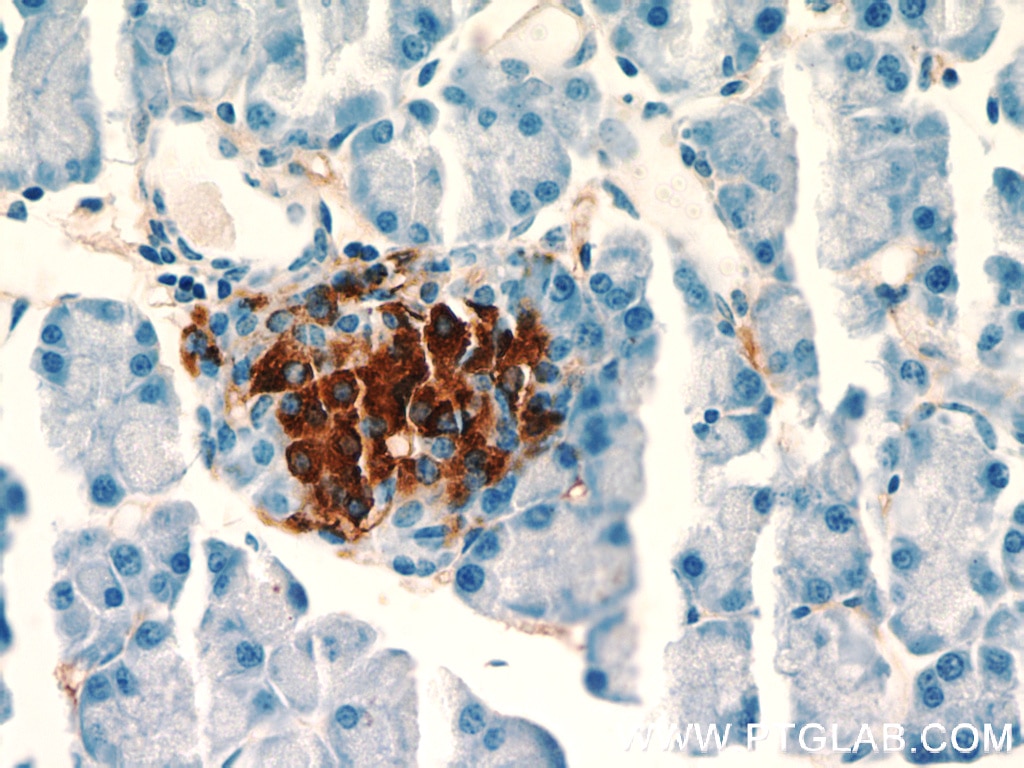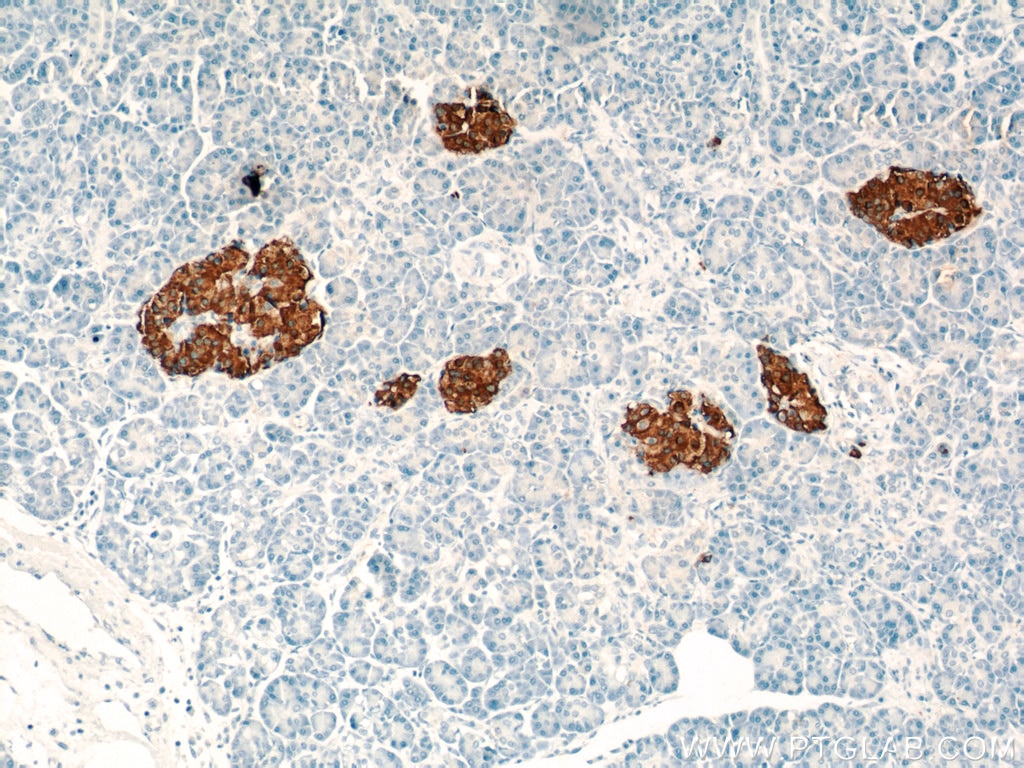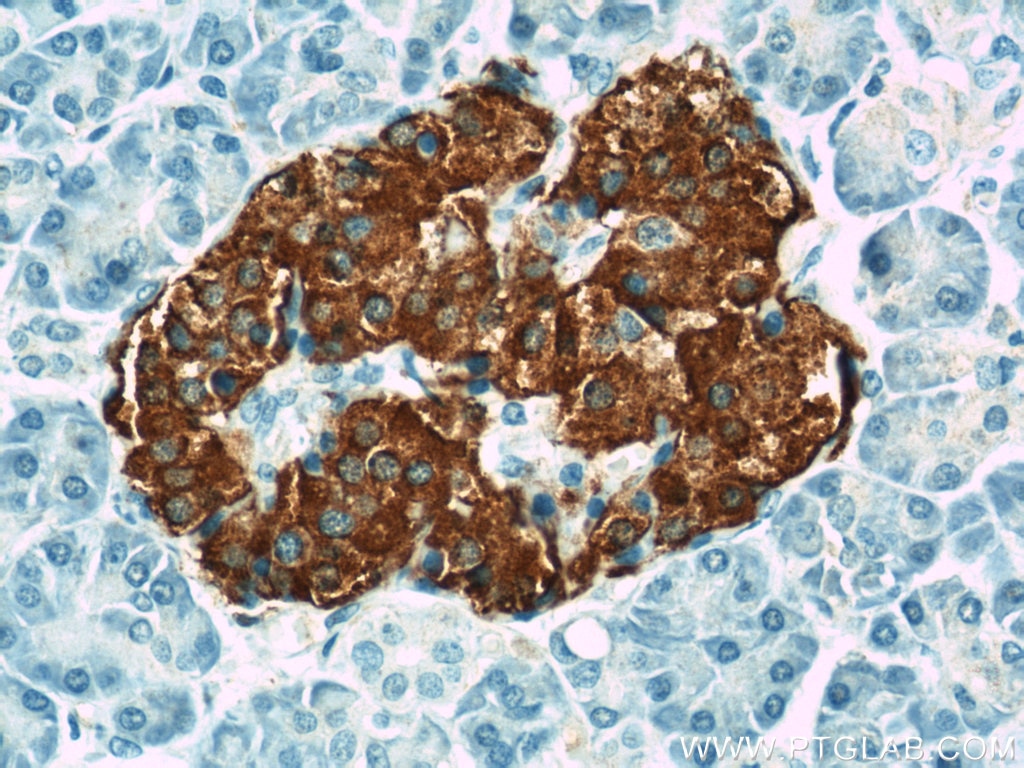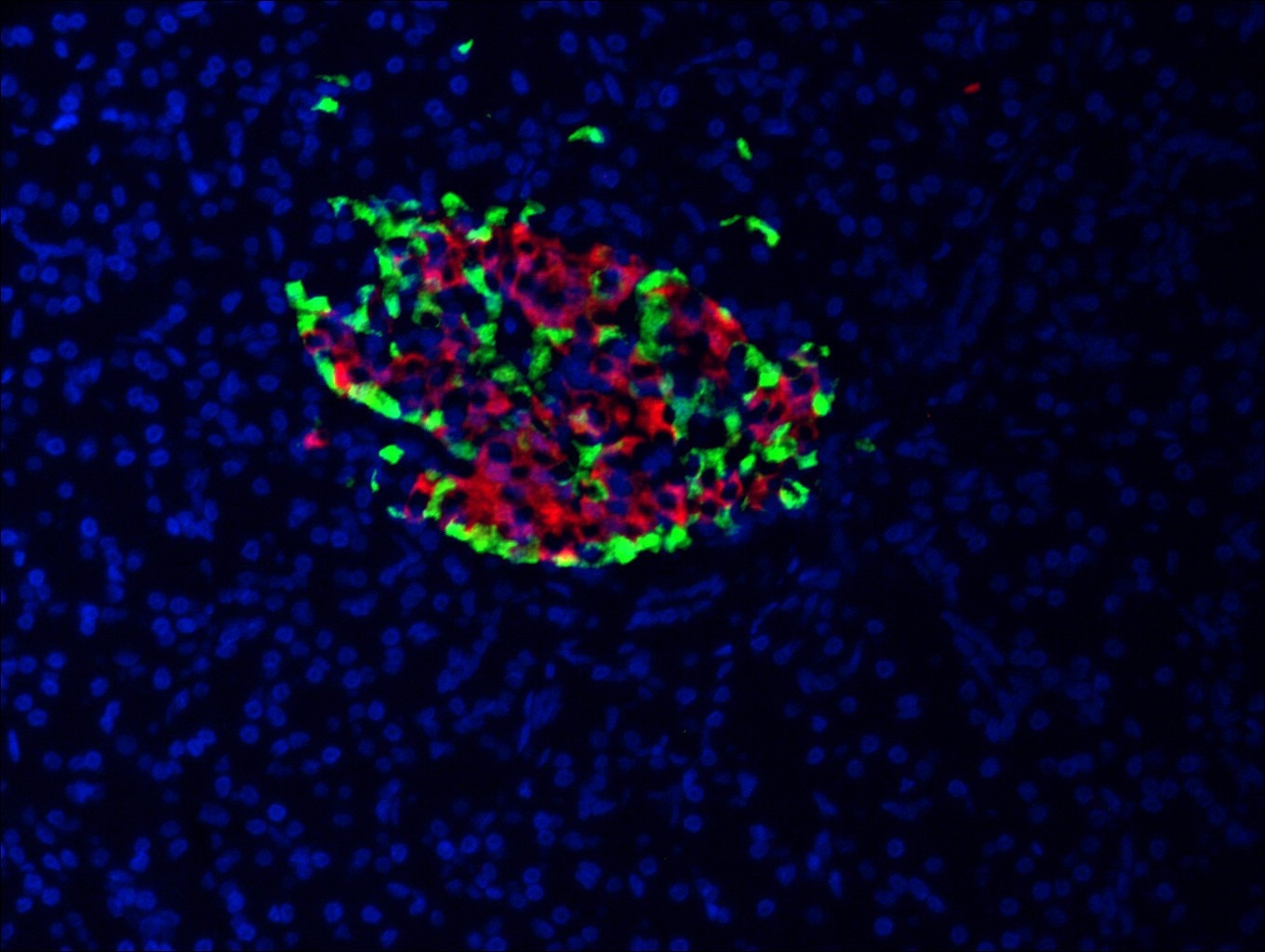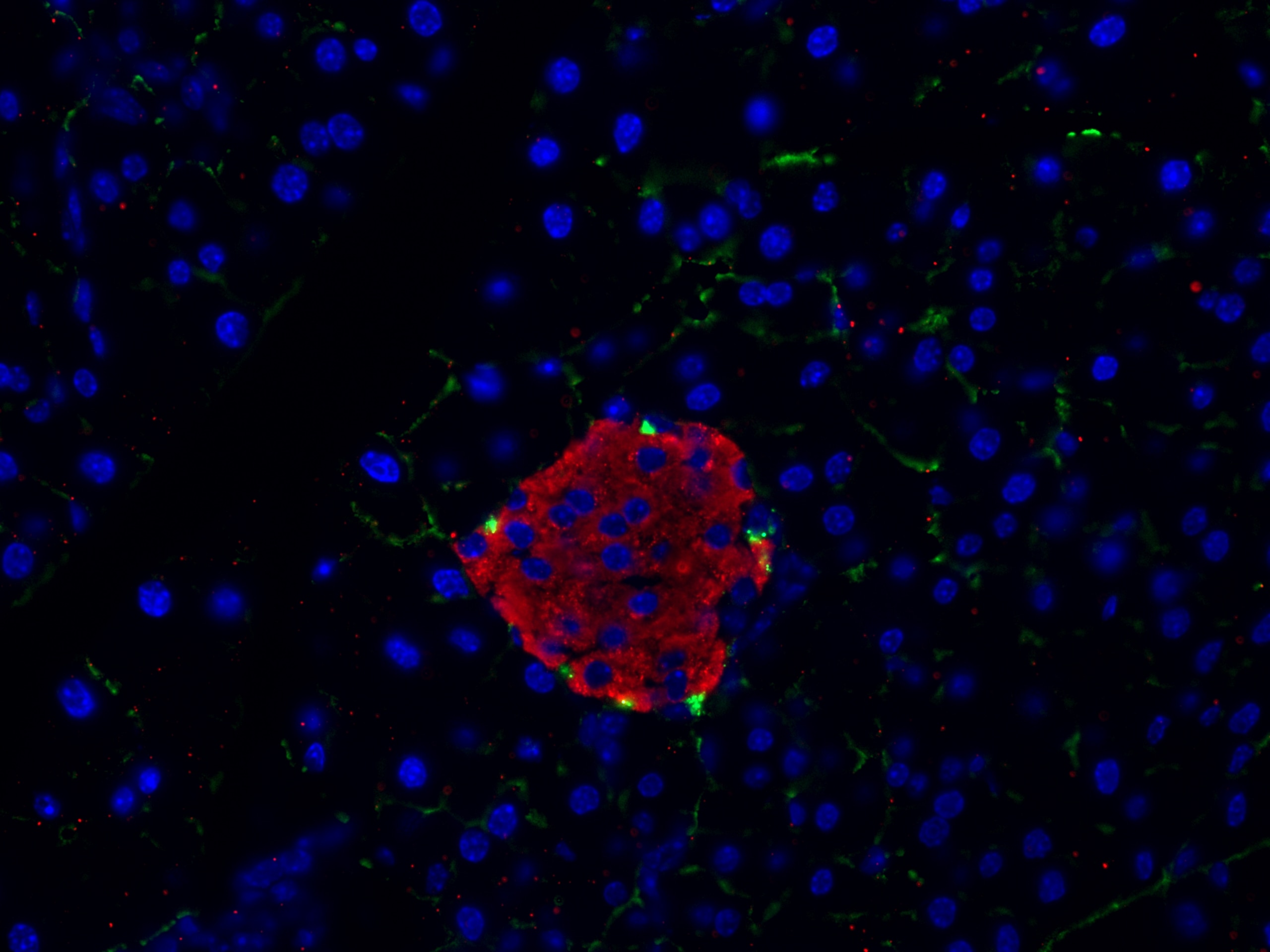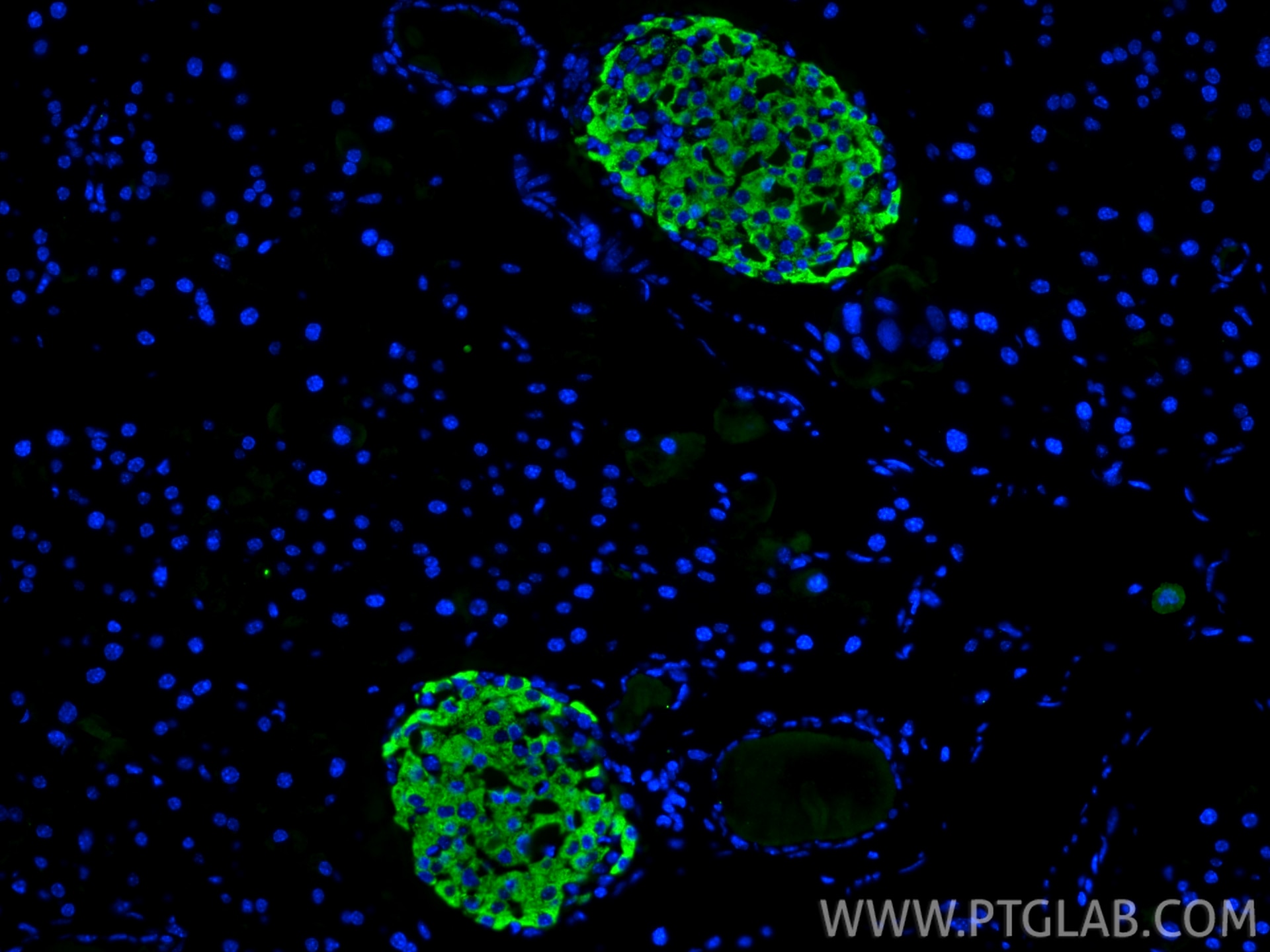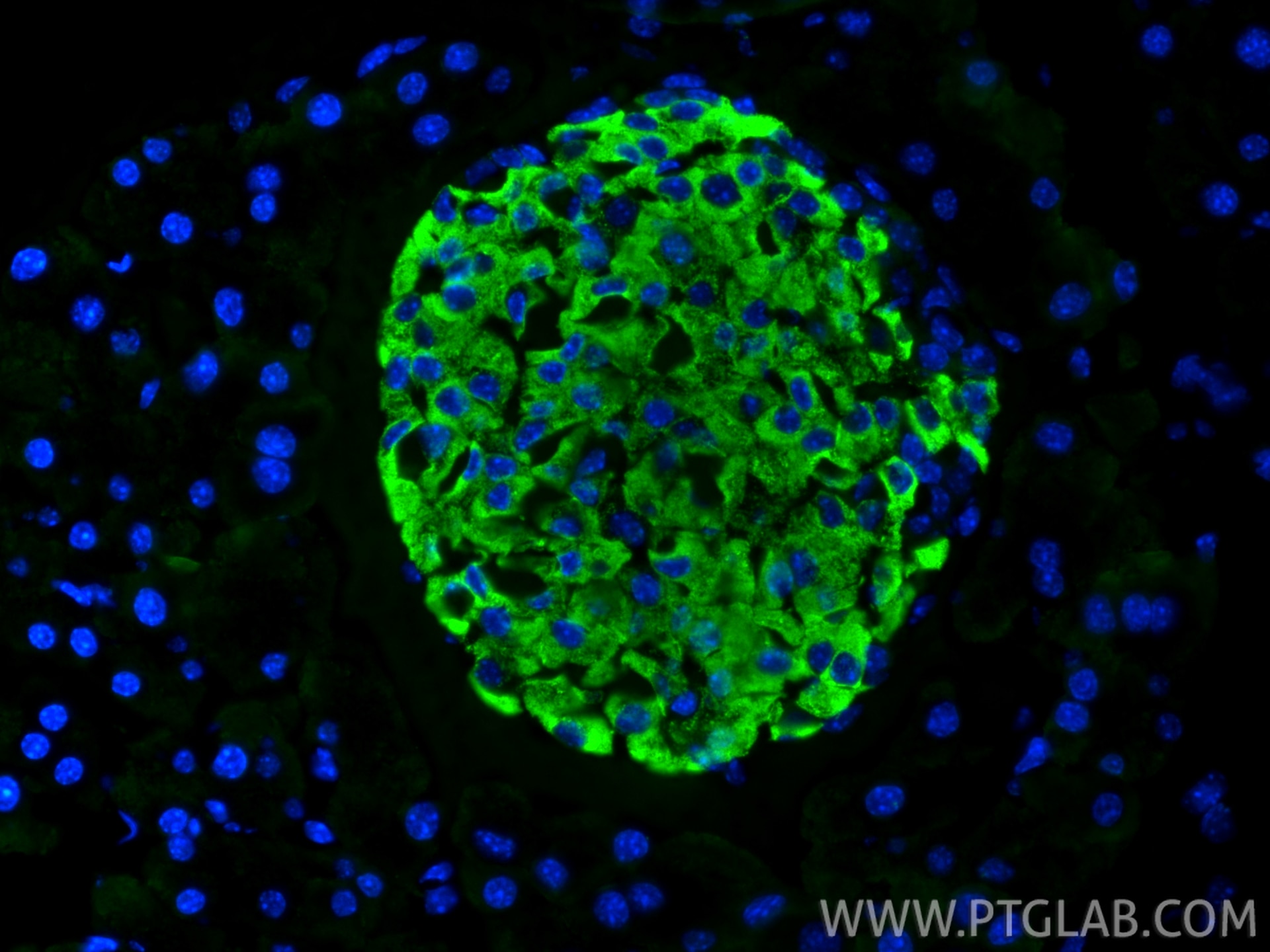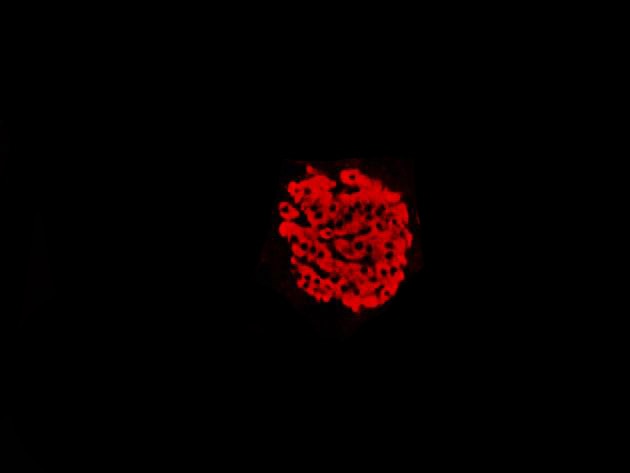Validation Data Gallery
Tested Applications
| Positive IHC detected in | mouse pancreas tissue, human pancreas tissue, rat pancreas tissue Note: suggested antigen retrieval with TE buffer pH 9.0; (*) Alternatively, antigen retrieval may be performed with citrate buffer pH 6.0 |
| Positive IF-P detected in | human pancreas tissue, mouse pancreas tissue |
Recommended dilution
| Application | Dilution |
|---|---|
| Immunohistochemistry (IHC) | IHC : 1:500-1:2000 |
| Immunofluorescence (IF)-P | IF-P : 1:50-1:500 |
| It is recommended that this reagent should be titrated in each testing system to obtain optimal results. | |
| Sample-dependent, Check data in validation data gallery. | |
Published Applications
| IHC | See 38 publications below |
| IF | See 39 publications below |
| ELISA | See 1 publications below |
Product Information
15848-1-AP targets INS in IHC, IF-P, ELISA applications and shows reactivity with human, mouse, rat samples.
| Tested Reactivity | human, mouse, rat |
| Cited Reactivity | human, mouse, rat, zebrafish |
| Host / Isotype | Rabbit / IgG |
| Class | Polyclonal |
| Type | Antibody |
| Immunogen |
CatNo: Ag8630 Product name: Recombinant human Insulin protein Source: e coli.-derived, PGEX-4T Tag: GST Domain: 1-110 aa of BC005255 Sequence: MALWMRLLPLLALLALWGPDPAAAFVNQHLCGSHLVEALYLVCGERGFFYTPKTRREAEDLQVGQVELGGGPGAGSLQPLALEGSLQKRGIVEQCCTSICSLYQLENYCN 相同性解析による交差性が予測される生物種 |
| Full Name | INS |
| Calculated molecular weight | 110 aa, 12 kDa |
| GenBank accession number | BC005255 |
| Gene Symbol | INS |
| Gene ID (NCBI) | 3630 |
| RRID | AB_10597100 |
| Conjugate | Unconjugated |
| Form | |
| Form | Liquid |
| Purification Method | Antigen affinity purification |
| UNIPROT ID | P01308 |
| Storage Buffer | PBS with 0.02% sodium azide and 50% glycerol{{ptg:BufferTemp}}7.3 |
| Storage Conditions | Store at -20°C. Stable for one year after shipment. Aliquoting is unnecessary for -20oC storage. |
Background Information
INS is a peptide hormone, produced by beta cells of the pancreas, and is central to regulating carbohydrate and fat metabolism in the body. It participates in glucose utilization, protein synthesis and in the formation and storage of neutral lipids. INS is synthesized as a precursor molecule, proinsulin, which is processed prior to secretion. A- and B-peptides are joined together by a disulfide bond to form INS, while the central portion of the precursor molecule is cleaved and released as the C-peptide. Defects in INS results in type 1 diabetes mellitus.
Protocols
| Product Specific Protocols | |
|---|---|
| IF protocol for INS antibody 15848-1-AP | Download protocol |
| IHC protocol for INS antibody 15848-1-AP | Download protocol |
| Standard Protocols | |
|---|---|
| Click here to view our Standard Protocols |
Publications
| Species | Application | Title |
|---|---|---|
Nat Protoc Isolation of mouse pancreatic islet Procr+ progenitors and long-term expansion of islet organoids in vitro. | ||
Autophagy Secretory autophagy promotes RAB37-mediated insulin secretion under glucose stimulation both in vitro and in vivo | ||
Environ Pollut Low-dose bisphenol AF exerts slight effects on glycolipid metabolism but causes metabolic disorders under the stress of Western diet in mice | ||
Theranostics Circular RNA circPPM1F modulates M1 macrophage activation and pancreatic islet inflammation in type 1 diabetes mellitus. |

